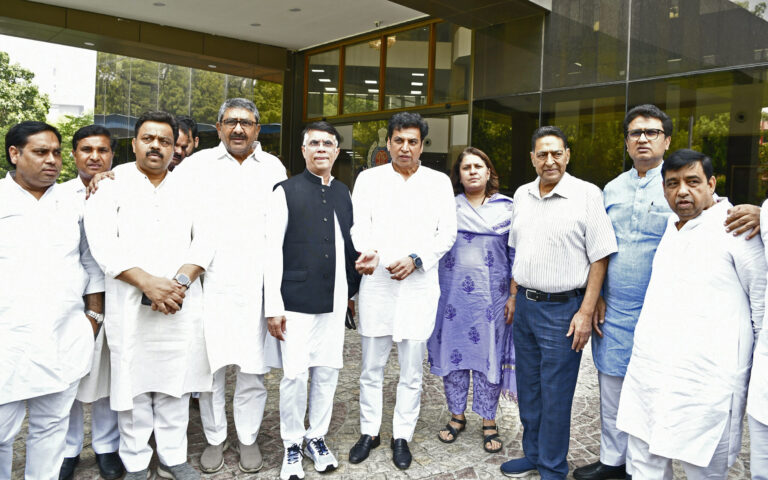New Delhi: After parting ways with the AAP, the party has begun preparations to run on its own in the Delhi assembly elections.
After suffering three consecutive defeats in the Lok Sabha elections, the Indian National Congress Party has begun preparations for next year’s Delhi assembly polls. The veteran party, which has been in power in the union territory for a decade, was defeated by Ahmed Aami’s Party.
They supported the AAP government in 2013, but it was short-lived as it failed to secure a majority in the 70-seat Assembly, forcing it to contest new elections. In that election, the BJP emerged as the largest party with 31 seats, but the AAP formed the government with the support of eight members of the Congress, and Arvind Kejriwal became the Chief Minister. He resigned on 14 February 2014 after failing to pass the Jan Lokpal Bill due to opposition from both the Congress and the BJP. Kejriwal alleged that both parties had obstructed the bill to protect their vested interests. In the subsequent elections in 2015 and 2020, the party won unopposed.
However, hopes were revived with the party’s improved performance in the 2019 general elections. Though it failed to win any seats in the general election, it came second in many elections, garnering around 22% of the votes, but that did not last long as its vote share again dropped to 4.3% in the 2020 state assembly elections, failing to win any seats.
The party has started preparations for the Assembly elections which are expected to be held in February or earlier. The party is meeting its members on a weekly basis. It has asked its block presidents to meet on the second day of every month and its district presidents on the fifth day of every month so that members can address any issues related to the party.
Delhi Congress interim leader Devender Yadav also directed party workers to make people aware of the inaction and incompetence of the BJP and AAP governments for the last decade in the interest of the people, as these parties did not act when faced with acute water scarcity, heatwave deaths and lack of preparedness to deal with monsoon challenges. He further instructed party workers to regularly interact with people in Jhuggi Jhopri (JJ) colonies, informal settlements and other residential areas to understand their problems and urge the authorities concerned to resolve them. The party is also trying to bring back some grassroots activists who had left the party.
In the recently concluded Indian Lok Sabha elections, the Indian National Congress won 18.9% of the votes in the three contested seats, lower than the vote share it received in the 2019 general election, but the majority of seats were contested by the Indian National Congress as part of the Indian Union. Now, the Indian National Congress and the Indian National Congress have parted ways, and the Indian National Congress will contest state assembly elections alone.
Some political experts say that the AAP and the BJP have similar vote bases and that the AAP’s free electoral system has led to lopsided results in state assembly elections, preventing the BJP from winning seats. At the national level, the BJP and the BJP are rival parties, but in Delhi, the BJP’s main rival is the AAP, as its core vote base leans towards the ruling party. The BJP has always criticised the AAP for its management of national issues.
“The party’s increase in vote share in the recent Lok Sabha elections is a source of great pride for Congress members and demonstrates renewed public confidence in the party to govern effectively in Delhi. Delhi has achieved remarkable development during the Congress’ tenure. Today, its residents face major challenges in accessing clean drinking water, endure frequent power outages and deal with problems including flooding and severe air and water pollution,” Yadav said at a rally in his Adarsh Nagar constituency.

